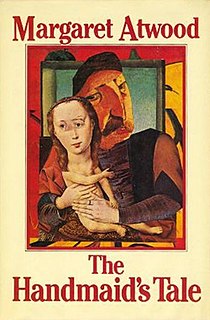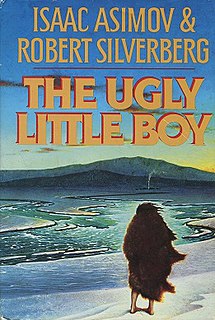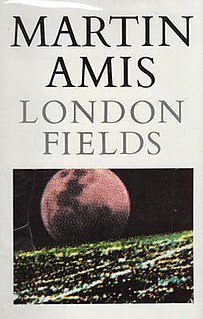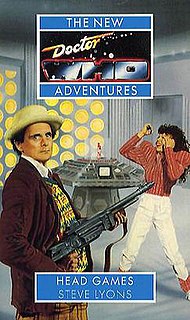
Flight from Rebirth is a science fiction novel by British writer J. T. McIntosh, published in July 1971 by Avon Books.

Flight from Rebirth is a science fiction novel by British writer J. T. McIntosh, published in July 1971 by Avon Books.
Modern science has discovered a way to rejuvenate people. It is just like immortality, but the rejuvenation process causes the human brain to be "restarted"–effectively losing all its former memories so the recipient starts life anew, like a blank slate.
The world has reached a stage where there is very little privacy, and the rigors of modern society invade just about every corner of life. Even still, there are outcasts in remote areas who find a way of surviving without being part of the wider society.
The main character, Benny Rice, struggles to maintain a low profile, even going so far as to quit and change jobs when offered a promotion; his personal history mysteriously dates back to a series of dead ends. No matter what job he has had, he always quits before getting promoted. An amicable, friendly sort, he is in for quite a surprise when an unlikely friend, a multi-billionairess, is so taken with his gentleness and kindness that she decides to write him into her will as the principal co-beneficiary to her vast estate of billions. The "Trust" is a foundation that encourages the successful, the accomplished, and the intelligent—basically the cream of the crop—to undergo the rejuvenation process. However, her will requires the Rejuvenation Foundation give Benny exactly the same treatment reserved to the successful and rich. Public notoriety is exactly what Benny Rice does not want. He only wants to be left alone and allowed to go on with his quiet and peaceful life in a position in life that is least subject to public scrutiny.

Robert Anson Heinlein was an American science fiction author, aeronautical engineer, and naval officer. Sometimes called the "dean of science fiction writers", he was among the first to emphasize scientific accuracy in his fiction, and was thus a pioneer of the subgenre of hard science fiction. His published works, both fiction and non-fiction, express admiration for competence and emphasize the value of critical thinking. His plots often posed provocative situations which challenged conventional social mores. His work continues to have an influence on the science-fiction genre, and on modern culture more generally.

Friday is a 1982 science fiction novel by Robert A. Heinlein. It is the story of a female "artificial person", the eponymous Friday, genetically engineered to be stronger, faster, smarter, and generally better than normal humans. Artificial humans are widely resented, and much of the story deals with Friday's struggle both against prejudice and to conceal her enhanced attributes from other humans. The story is set in a Balkanized 21st century, in which the nations of the North American continent have been split up into a number of smaller states.

The Foundation series is a science fiction book series written by American author Isaac Asimov. First published as a series of short stories in 1942–50, and subsequently in three collections in 1951–53, for thirty years the series was a trilogy: Foundation; Foundation and Empire; and Second Foundation. It won the one-time Hugo Award for "Best All-Time Series" in 1966. Asimov began adding new volumes in 1981, with two sequels: Foundation's Edge and Foundation and Earth, and two prequels: Prelude to Foundation and Forward the Foundation. The additions made reference to events in Asimov's Robot and Empire series, indicating that they also were set in the same fictional universe.

Native Son (1940) is a novel written by the American author Richard Wright. It tells the story of 20-year-old Bigger Thomas, a black youth living in utter poverty in a poor area on Chicago's South Side in the 1930s.
Lazarus Long is a fictional character featured in a number of science fiction novels by Robert A. Heinlein. Born in 1912 in the third generation of a selective breeding experiment run by the Ira Howard Foundation, Lazarus becomes unusually long-lived, living well over two thousand years with the aid of occasional rejuvenation treatments. Heinlein "patterned" Long on science fiction writer Edward E. Smith, mixed with Jack Williamson's fictional Giles Habibula.

Sexual themes are frequently used in science fiction or related genres. Such elements may include depictions of realistic sexual interactions in a science fictional setting, a protagonist with an alternative sexuality, a sexual encounter between a human and a fictional extraterrestrial, or exploration of the varieties of sexual experience that deviate from the conventional.

The Handmaid's Tale is a futuristic dystopian novel by Canadian author Margaret Atwood, published in 1985. It is set in a near-future New England, in a strongly patriarchal, white supremacist, totalitarian theonomic/theocratic state, known as the Republic of Gilead, which has overthrown the United States government. The central character and narrator is a woman named Offred, one of the "handmaids" — a group of women who are forcibly assigned to produce children for the "commanders" — the ruling class of men in Gilead.

The Years of Rice and Salt is an alternate history novel by American science fiction author Kim Stanley Robinson, published in 2002. The novel explores how world history might have been different if the Black Death plague had killed 99 percent of Europe's population, instead of a third as it did in reality. Divided into ten parts, the story spans hundreds of years, from the army of the Muslim conqueror Timur to the 21st century, with Europe being re-populated by Muslim pioneers, the indigenous peoples of the Americas forming a league to resist Chinese and Muslim invaders, and a 67-year-long world war being fought primarily between Muslim states and the Chinese and their allies. While the ten parts take place in different times and places, they are connected by a group of characters that are reincarnated into each time but are identified to the reader by the first letter of their name being consistent in each life.

Arrowsmith is a novel by American author Sinclair Lewis, first published in 1925. It won the 1926 Pulitzer Prize. Lewis was greatly assisted in its preparation by science writer Paul de Kruif, who received 25% of the royalties on sales, although Lewis was listed as the sole author.

"The Ugly Little Boy" is a science fiction short story by American writer Isaac Asimov. The story first appeared in the September 1958 issue of Galaxy Science Fiction under the title "Lastborn", and was reprinted under its current title in the 1959 collection Nine Tomorrows. The story deals with a Homo neanderthalensis child which is brought to the future by means of time travel. Robert Silverberg later expanded it into a novel with the same title published in 1992.

The Virgin New Adventures are a series of novels from Virgin Publishing based on the British science-fiction television series Doctor Who. They continued the story of the Doctor from the point at which the television programme went into hiatus from television in 1989.

Beloved is a 1987 novel by the American writer Toni Morrison. Set after the American Civil War, it tells the story of a family of formerly enslaved people whose Cincinnati home is haunted by a malevolent spirit. Beloved is inspired by an event that actually happened: Margaret Garner, an enslaved person in Kentucky, who escaped and fled to the free state of Ohio in 1856. She was subject to capture in accordance with the Fugitive Slave Act of 1850; when U.S. marshals burst into the cabin where Garner and her husband had barricaded themselves, she was attempting to kill her children, and had already killed her two-year-old daughter, to spare them from being returned to slavery.

London Fields is a black comic, murder mystery novel by British writer Martin Amis, published in 1989. Regarded by Amis's readership as possibly his strongest novel, the tone gradually shifts from high comedy, interspersed with deep personal introspections, to a dark sense of foreboding and eventually panic at the approach of the deadline, or "horror day", the climactic scene alluded to on the very first page.

Colony was the first novel written by Rob Grant outside the Red Dwarf series. First published in 2000 by Viking Press in the United Kingdom it stays within the comedy, science fiction genre. The narrative is set on a spaceship sent on a voyage to colonise another planet, since Earth has been rendered uninhabitable. The mission is set to take numerous generations. Ten generations into the voyage, however, the crew's mental abilities have all been severely reduced, setting the events of the novel in motion.

Mind uploading, whole brain emulation, or substrate-independent minds, is a use of a computer or another substrate as an emulated human brain. The term "mind transfer" also refers to a hypothetical transfer of a mind from one biological brain to another. Uploaded minds and societies of minds, often in simulated realities, are recurring themes in science-fiction novels and films since the 1950s.

Head Games is an original novel written by Steve Lyons and based on the long-running British science fiction television series Doctor Who. It features the Seventh Doctor, Bernice, Chris, Roz, Mel and Ace.

Change of Command is a science fiction novel by Elizabeth Moon, first published in 1999. It is set in her Familias Regnant fictional universe, and is the third novel in the informal Esmay Suiza trilogy.

The Brief Wondrous Life of Oscar Wao is a 2007 novel written by Dominican American author Junot Díaz. Although a work of fiction, the novel is set in New Jersey in the United States, where Díaz was raised, and it deals with the Dominican Republic experience under dictator Rafael Trujillo. The book chronicles both the life of Oscar de León, an overweight Dominican boy growing up in Paterson, New Jersey, who is obsessed with science fiction and fantasy novels and with falling in love, as well as a curse that has plagued his family for generations.

Through the Valley of the Nest of Spiders is a novel by Samuel R. Delany.

Inverted World is a 1974 science fiction novel by British writer Christopher Priest. The novel's basic premise was first used in the short story "The Inverted World" included in New Writings in SF 22 (1973), which had different characters and plot. In 2010, the novel was included in the SF Masterworks collection.